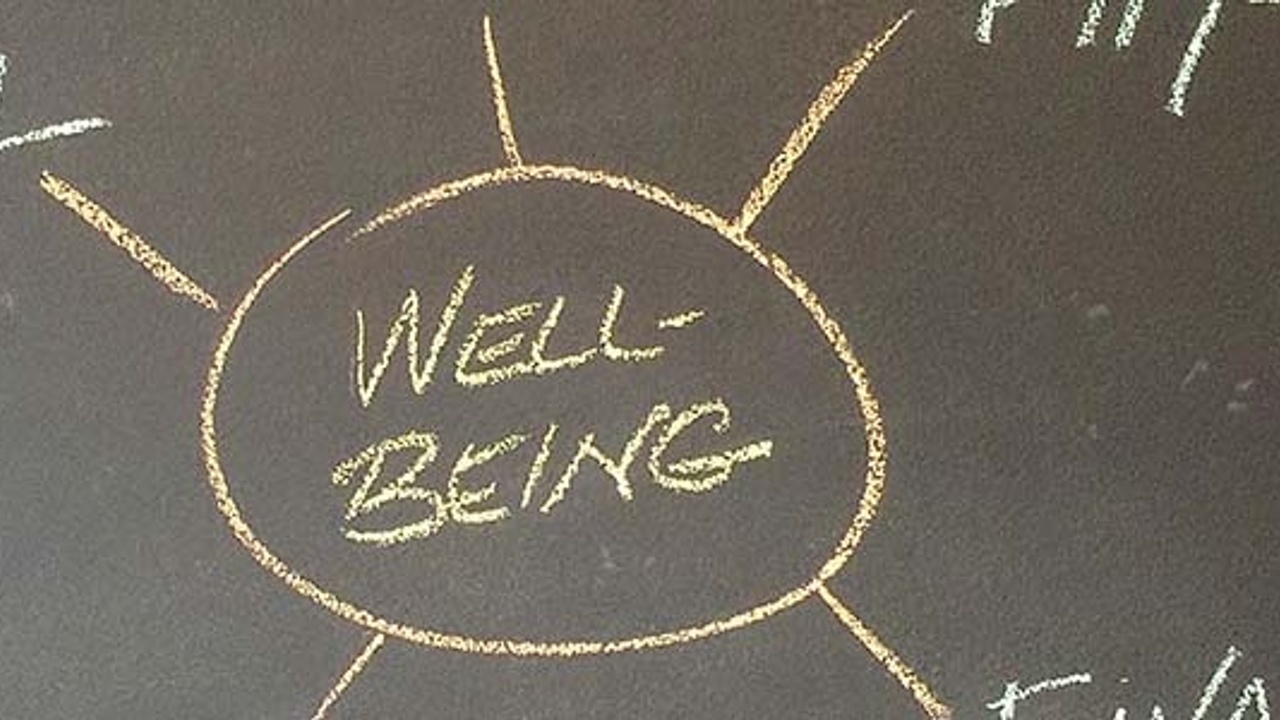It’s All About Well-Being
May 12, 2016
Longevity: Nature vs. Nurture?
My grandparents had a strong influence on my life. My maternal grandfather, “Ace” as his basketball teammates used to call him, wrote scores of letters to me and encouraged me to play hoops which I still enjoy today. From Pittsburgh, my paternal grandfather, an academic researcher and owner of dozens of patents, influenced my interest in innovation and sparked my loyalty to the Pittsburgh Steelers.
Of course, one of the reasons they had a big impact was that they lived long and healthy lives. Each of my grandparents lived past age 75 with my paternal grandmother living into her early 90s. My parents are also healthy and are in their early 70s. I feel blessed to have good genes and to have comfort that I am predisposed to also live a long, healthy life.
Or so I thought. Actually, it turns out that as we get older, our lifestyle is more important than our DNA in influencing the length and quality of our life. Yes, as Dr. Laura Carstensen, Founding Director of the Stanford Center on Longevity, points out in her book, A Long Bright Future, “except in extreme cases — when an inherited illness causes family members to die before age 60 — ancestral longevity isn’t a very important predictor of individual longevity.”
In short, as you age, your lifestyle is more important than your DNA.
While this may be disappointing to people like me with good genes, I think it is a net positive for all of us. It means that we really can influence the trajectory of our lives though our life choices.
Well-Being 101
So what is lifestyle? What do good choices look like?
One approach is to focus on well-being.
Bill Novelli, a professor at McDonough School of Business at Georgetown University and former CEO of AARP – and moderator of The Future of Housing For Grown-Ups: A National and Local Perspective hosted at The Stories (read a summary of this event in Forbes), first introduced me to the Gallup-Healthways Well-Being Index. This self-reported index focused on five areas:
- Purpose: liking what you do each day and being motivated to achieve your goals
- Social: having supportive relationships and love in your life
- Financial: managing your economic life to reduce stress and increase security
- Community: liking where you live, feeling safe, and having pride in your community
- Physical: having good health and enough energy to get things done daily
The index has been tracking well-being along these measures since 2008 and has data from over 2 million surveys. In its most recent survey, among the largest 190 metropolitan markets nationwide, Naples, FL ranked first and Charleston, West Virginia scored the lowest.
Well-being is of increasing interest. To an individual, as mentioned above, it can help influence the trajectory of your life. To companies, improved well-being can reduce employee health costs. To health systems and our government, higher well-being across a population can help manage health care costs as we move from fee for service to value based health care as part of the affordable care act.
Rethinking the Role of Housing
Sometimes, we think of housing as simply a place to just hang our hat, but it can be so much more. What if housing played a key role in elevating personal well-being and such options were available for people of all ages and stages and income levels? What would this look like?
I believe it starts with an intentional physical blueprint as well as an intentional culture to help bring out the best in each person. Physical design elements, such as spacious and well-located common spaces, can help promote social connection. Universal design features and state-of-the-art fitness centers in a walkable location can help improve physical health. Resident-led programming and greater connectivity to each other can help people feel a greater sense of pride and security in their community. Greater ties to resources in the local community – often facilitated by some onsite staff – can also elevate purpose (see my three minute fast pitch talk at the 2016 Encore Conference on the opportunities to create communities of purpose). If thoughtfully and efficiently conceived, such an environment can be fiscally wise, too.
With so many changes and advances in our culture, this is an exciting time to rethink the role of housing. It can become a foundation for personal well-being and have an impact on all of us ranging grandparents to empty nesters to young families to young couples to singles. As my grandfather, Ace, would often pen to me, this is an exciting time to be alive.
Take the Right Place, Right Time Assessment
Are you in the right place for right now? This quick assessment will reveal opportunities to improve your life.
Subscribe to The Blog
We hate SPAM. We will never sell your information, for any reason.

